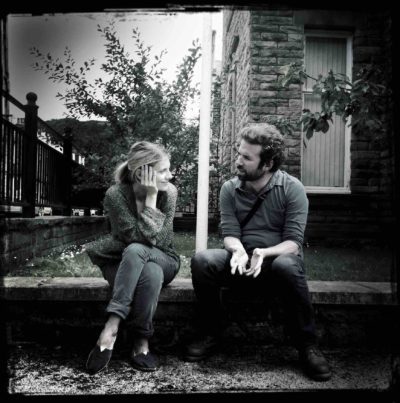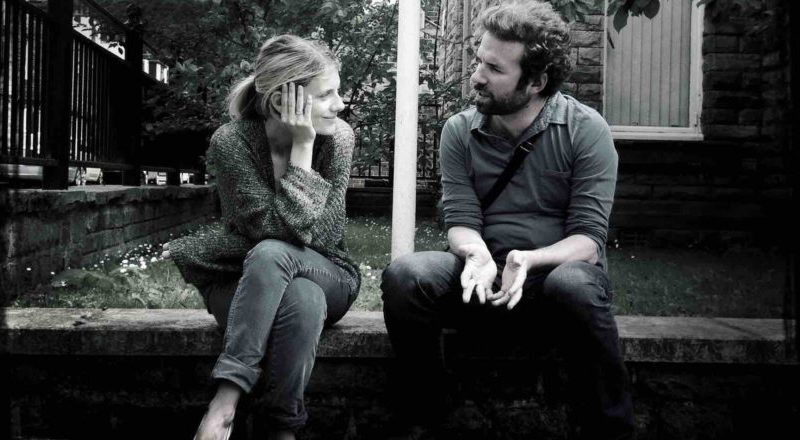INTERVIEW: Celebrate Earth Day with new documentary ‘Tomorrow’

Environmental activist Cyril Dion has teamed up with actress Mélanie Laurent (Inglorious Basterds) on new a documentary that asks an important question that is no longer existential: What is humanity going to do to ensure tomorrow will still be there?
The level of environmental destruction and the constant threat of climate change have made the future a perilous concept. Science fiction has become science, in many ways, and one can certainly become depressed over the looming realities surrounding humans, animals and the ecosystem.
In Dion and Laurent’s new documentary, entitled Tomorrow, the focus is less on the dire consequences of human-caused degradation and more on the hope that can be found in the world. Individuals can make individual contributions to better the chances of having a sustainable tomorrow, and this idea drove Dion and Laurent to the far reaches of planet Earth.
Their efforts paid off with a Best Documentary Feature prizes at the César Awards and COLCOA French Film Festival in Los Angeles. Dion has also published a new book called Tomorrow: All Over the Globe, Solutions Already Exist.
As the two interview subjects from 10 countries, they take note of the workable solutions that communities are enacting to save the environment and improve their lives. In that way, Tomorrow is a checklist of how to look into a child’s eyes without a feeling of guilt, to take back the stewardship of the land, to live a life of meaning and sustainability.
Recently, Hollywood Soapbox exchanged emails with Dion about all things environmental. Questions and answers have been slightly edited for style.
When you think of our collective future, do you get depressed over the destruction or hopeful that there are examples of positive change?
A little bit of both! If we look honestly at the situation, there’s a lot to be depressed about. The combination of climate change, mass species extinction, the increase of the population and the inequalities, we’ve never been faced with such imminent danger.
But I also know that human beings are capable of giving their best. We are creative and smart. We all have the human qualities needed to avoid the worst. We have to decide to act, together.
How did the documentary project begin? When did you realize you had enough material for a full feature film?
I ran an NGO for almost 10 years. I felt that our way of rallying people did not work. If you bring up ecological disasters all the time, it triggers reactions of fear, flight and denial. If you spend your time telling people to stop taking the plane, to stop using their car, to stop eating meat, to stop taking baths, that won’t give them the energy to do anything.
So I thought, we had to tell a different story about the future, show a desirable future, inspiring projects that awaken a sense of enthusiasm and creativity. I started writing the film in December 2010. In July 2012, I read a terrifying study in Nature magazine that talked about a possible collapse of our ecosystems, which could cause the disappearance of a part of our humanity by 2100. There was no more time to waste. I had collected dozens of solutions over the years. I was ready. In October, I asked Mélanie to join me, and we started working on the project.
Why do you think human destruction has become such an unchecked problem? Are we inherently destructive?
We humans are, by nature, very anxious — perhaps, because we are the only species who knows it’s going to die. This enormous insecurity conditions our actions. Therefore, we are permanently looking for security through money, objects, domination and violence.
For a long time, we felt threatened by nature and used to consider her as a danger. Today, we try to dominate her and contain her, to stop feeling vulnerable. This is a huge mistake.
Nature is not external to us. We are nature as well. We need to find ways of living in harmony with nature instead of trying to extract ourselves from her.
What were the challenges of filming in so many countries?
We [had] very short time to film each location. We had to be very precise when filming, to waste the [least] time possible.
It was also a real challenge to create a relationship with the persons we were interviewing in order that in the film they showed at their best.
But the biggest challenge was, I think, the editing. During nine months, we have worked so hard to find the good balance between the stories, and we had so many stories! We had to keep the minimum, but, on the other hand, it has to be understandable and also fit the [whole] story!
What would you tell skeptics who don’t want to change their practices to improve the environment?
It is not about improving the environment; it is about improving your life and the [lives] of your children and grandchildren.
Climate change, mass extinction of species are not [beliefs]; they are a scientific facts. So we now have a choice: keep on going like that and running to the edge of the cliff, or building another world, where human and nature could live in harmony, where [we’ll] have meaningful lives, where we will be happier, where we’ll be able to look our children in the eyes, feeling [at] peace with ourselves.
I already made my choice.
By John Soltes / Publisher / John@HollywoodSoapbox.com
Tomorrow will be released in cinemas, including New York City’s Village East, Friday, April 21. Click here for more information.

